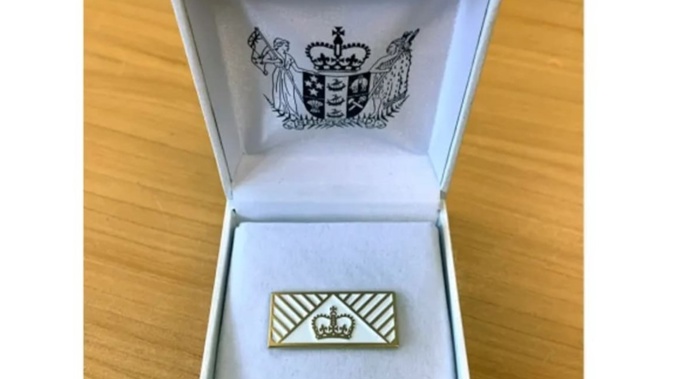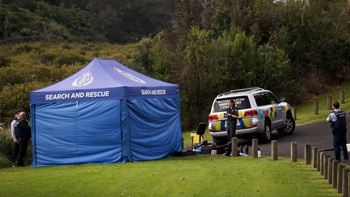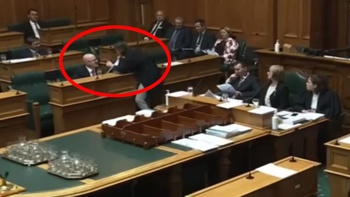
Update: After reply from DPMC, this RNZ story has been updated to reflect while $2 million was set aside for the pins, only $717,000 was spent.
The previous government set aside $2 million for lapel pins to honour thousands of Covid-19 workers, and now the agency that paid is under cost-cutting pressure, documents show.
It was announced in late 2022 that up to 80,000 frontline workers, such as MIQ workers, would get the pins as part of the 2023 New Year Honours.
The latest annual review of the Department of Prime Minister and Cabinet (DPMC) lists the $2m contract done by the Cabinet Office with a Wellington company.
DPMC - which replied to questions from RNZ on Friday - said it spent only $717,000 on the lapel pins because it gave out fewer than expected. The underspend was returned to the Crown.
“While the total contract for the lapel pins was for was $2m, a lower than anticipated number of awards and the lower unit cost of final award items (a lapel pin/citation, and a certificate) resulted in the total expenditure being much lower than original estimates,” it said on Friday.
The DPMC has confirmed to RNZ it was now looking to make cuts - “to identify credible savings options”.
So is the National Emergency Management Agency, an autonomous part of DPMC.
“NEMA, alongside our host agency DPMC, is currently working to identify credible savings options that allow us to continue our important work and minimise the impact on people,” NEMA said.
“Final decisions will be made as part of the Budget 2024 process.”
NEMA said it was not involved in the lapels.
The amount, $2m, is about the same budgeted for Civil Defence Emergency Management training in NEMA’s 2022-23 non-departmental expenses, its briefing to its minister shows. This year it budgeted nothing for that.
Both it and DPMC are central to the government’s response to overhaul emergency management in the wake of ongoing damning inquiries into last year’s response to Cyclone Gabrielle and other storms.
The latest inquiry this week said NEMA was not up to the task.
It recommended to: “Legislate for and invest in [NEMA’s] primary function and purpose to hold system leadership for emergency readiness and response.”
The government told RNZ on Wednesday it was already moving to remake NEMA.
RNZ asked NEMA if it was proposing to cut roles, or if it had sought to establish if it could expect to expand or shrink in the near future, in response to the findings of the storm inquiries. It did not comment on that.
It and DPMC have suffered from high rates of staff quitting.
NEMA’s annual review said turnover peaked at 19 percent, though it told RNZ it was 17.3 percent and this had dropped to 15.9 percent. It had grown by about 100 hires since it was set up in 2019, to 154 staff.
The annual review said people were quitting to get better pay and progression.
In response, NEMA and DPMC last year made “targeted adjustments” to remuneration - raising pay. Now they are both cutting costs, but would not say if jobs would go.
The storms inquiry this week said NEMA “needs support to build its capacity and capability”.
The minister in charge of this, Mark Mitchell, said on Wednesday that spending to fix the system had to be done “in a measured and a well-planned way because obviously we’re in a position at the moment as a country where we’ve been living well beyond our means”.
DPMC for its part leads the post-Gabrielle work on regulations to boost the resilience of critical infrastructure like cellphone towers, in the face of natural disasters.
It told RNZ it would ensure the work went on “in a consistent and coordinated way”, adding the inquiry report reiterated the work was a priority.
-Phil Pennington, RNZ
Take your Radio, Podcasts and Music with you









